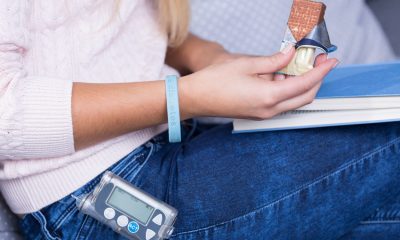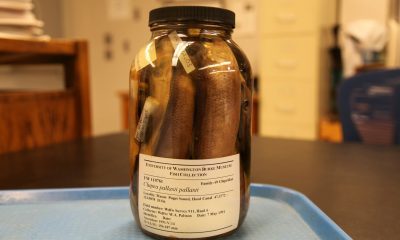By Gwyn Wright via SWNS
A blood sample taken a day after starting chemotherapy will be able to tell whether cancer patients will survive, scientists have discovered.
But despite the prognosis, medics hope that the early indication that chemo will not work will allow them to switch the patients to other drugs and treatments, actually increasing their chances of living longer.
Researchers say the amount of a protein increases in the bodies of patients who do not respond well to chemotherapy in the first 24 hours of their treatment.
The amount of the chemical, called ERK1/2, that the body produces helps predict whether someone will survive within five years, the academics add.
The Norwegian team says the discovery in a study of 32 people can help doctors treat patients who are not responding well with medicines early.
The method works on a particularly aggressive form of a blood cancer called acute myeloid leukemia, which has low survival rates.
The condition is a stem-cell derived form of myeloid malignancy characterized by genetic changes.
Although chemotherapy tends to work on it initially patients often relapse because leukemia-resistant cells emerge in their body.
Standard treatment for the condition involves a combination of the drugs daunorubicin, idarubicin and cytarabine.
Between 60 and 80 percent of patients recover but 40 percent of them then relapse.
Patients’ response to the therapy is usually measured after weeks or months but now but the new method can assess straight away whether the chemotherapy is working by looking at the functional properties of the cancerous cells.
Lead study author Benedicte Sjo Tislevoll from the University of Bergen said: “When treating patients with leukemia, it is challenging to quickly follow if the patient is responding to therapy or not.
“Our results show that the protein ERK1/2 increases within the first 24 hours of chemotherapy in patients who have a poor response to therapy.
“We believe that this protein is responsible for the cancer cells’ resistance to chemotherapy and can be used to distinguish responders from non-responders.
"We think that this is an important key in our understanding of cancer, and our aim is to use this information to change treatment early for patients who are not responding to therapy.”
The findings were published in the journal Nature Communications.

 Food & Drink1 week ago
Food & Drink1 week ago
 Broadcast1 week ago
Broadcast1 week ago
 Animals1 week ago
Animals1 week ago
 Broadcast1 week ago
Broadcast1 week ago
 Broadcast7 days ago
Broadcast7 days ago
 Funny7 days ago
Funny7 days ago
 Broadcast2 days ago
Broadcast2 days ago






















